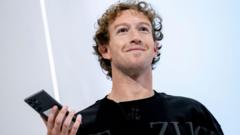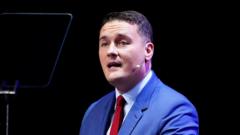Meta CEO Mark Zuckerberg recently visited Donald Trump at his Mar-a-Lago resort, signaling a significant shift in their previously strained relationship. This development comes amid a broader context of improving relations between the tech mogul and the president-elect.
Historically, Zuckerberg and Trump had a contentious relationship. Trump was banned from Facebook and Instagram following the Capitol riots, and he had previously threatened Zuckerberg with imprisonment if he interfered in the 2024 presidential election. However, recent events suggest a thawing of tensions.
In August, Trump had written that Zuckerberg would “spend the rest of his life in prison” for potential election interference. By October, his tone had softened considerably. Trump publicly thanked Zuckerberg for a personal phone call after an assassination attempt and noted it was “nice” that Zuckerberg was “staying out of the election.”
Zuckerberg has also made efforts to appear more accommodating. Meta has lifted Trump’s suspension from Facebook and Instagram, which was originally implemented in 2021 due to his comments about the January 6 Capitol events. In August, Zuckerberg expressed regret over de-promoting content related to Hunter Biden before the 2020 election and pledged to make no further contributions to electoral infrastructure.
During the dinner at Mar-a-Lago, a Meta spokesperson stated that Zuckerberg was “grateful for the invitation” and saw it as an “important time for the future of American Innovation.” The specific details of their conversation remain undisclosed.
While Zuckerberg’s improving relationship with Trump is notable, it has been overshadowed by Trump’s closer connection with Elon Musk. Musk’s support has been significantly more substantial, including over $100 million in campaign donations and enthusiastic endorsements. Their relationship is so close that some have dubbed Musk Trump’s “First Buddy,” and Musk has been positioned to lead a new Department of Government Efficiency.
Meta, meanwhile, continues to face regulatory challenges, including an ongoing antitrust case brought by the Federal Trade Commission in 2020. Zuckerberg’s dinner with Trump could potentially be seen as a strategic move to navigate these regulatory landscapes.
The evolving dynamics between tech leaders and political figures highlight the increasingly intertwined relationship between technology and politics. Zuckerberg’s dinner with Trump represents a potential strategic approach to maintaining influence and managing potential regulatory pressures, while also signaling a willingness to engage with the potential future administration.
As the 2024 election approaches, these relationships between tech moguls and political figures continue to be a subject of significant interest and speculation.




